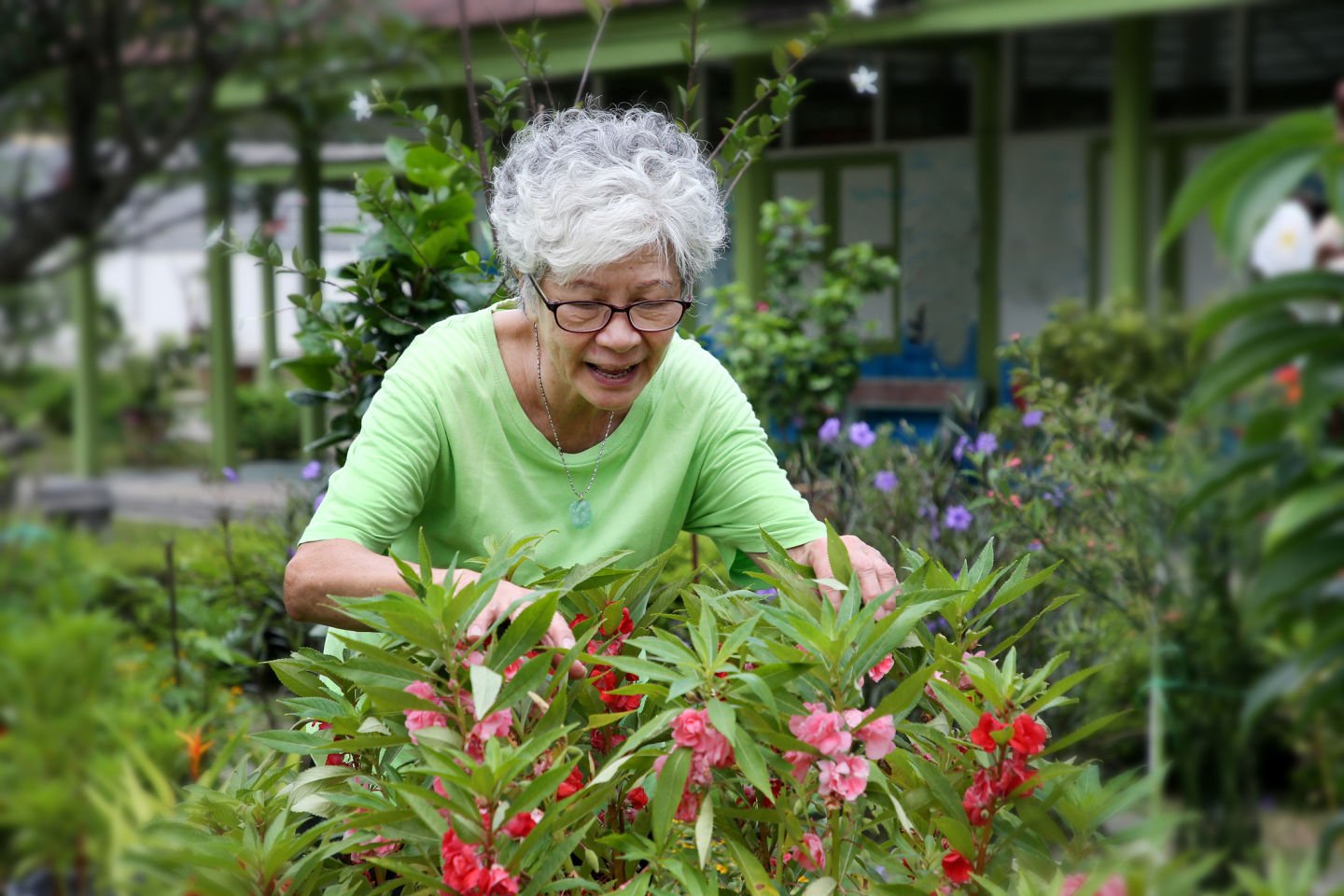Did you know you can get sick from gardening?
Danger lurks at the bottom of the summer garden - here's how you can avoid Legionnaires' disease while gardening.

Key Points
Ninety-six cases of Legionnaires' disease in New South Wales this year from potting mix and soil.
Gardeners are urged to wash their hands even if they have worn gloves.
Symptoms include fever, chills, a cough, shortness of breath and aching muscles.
Home gardeners should wear a face mask and gloves while handling potting mix and compost and wash their hands thoroughly to avoid contracting Legionnaires' disease.
Legionella longbeachae bacteria can be present in potting mix and soil and cause lung infection Legionnaires' disease if dust is inhaled.
The warnings come after a spike in garden-related Legionella cases in NSW and Queensland.
A Sydney woman in her 60s died recently from the disease after handling potting mix.
NSW Health said there had been 96 cases of Legionnaires' disease this year from the type of bacteria found in potting mix and soils.
Queensland has recorded 88 cases so far this year – more than three times the 2017-21 average for this time of the year. Two of this year's cases have died.
Paul’s story
Paul Copeland developed fevers, aches, and breathing difficulties and thought he had COVID-19.
However, it was Legionnaires’ disease, picked up during a day in his garden where he was carrying and working with soil and potting mix.
He was treated in the hospital and sent home but returned the next day when his condition worsened. He then spent another four days in the hospital.
Paul recovered after taking antibiotics and resting for two weeks. But returning to his previous level of physical activity has taken much longer.
"I've only just started going back to the gym in the last week," he said. "I always had mild asthma, and I've found since having Legionnaires' my asthma is a lot more severe, so I am constantly looking at my Ventolin and preventers.
"Hopefully, there are no long-term effects."
NSW Health advises that most people who breathe in the bacteria do not become ill, but the risk of infection increases if you are older, a smoker, or have a weakened immune system. Symptoms of Legionnaires' disease develop up to 10 days after exposure to the bacteria and include fever, chills, a cough, shortness of breath, aching muscles, headache, tiredness, loss of appetite and diarrhoea.
Harriet Whiley, associate professor in environmental health at Flinders University, stressed the importance of wearing a mask when using potting mix.
"Legionnaires' disease is not transmitted person to person, but through inhalation or aspiration of the Legionella bacteria," Dr Whiley said.
"This is why it is important to wear a mask, wet down soil and wear gloves/wash hands when handling potting mix."
Queensland Chief Health Officer (CHO) John Gerrard says higher than usual rainfall this year may be to blame. But another theory is that people are gardening more during the COVID-19 pandemic.
People should wear gloves and masks when working with garden soil or potting mix.
Wetting the potting mix first helps prevent any contaminated potting mix dust from blowing up into the air and being inhaled.
Even if you have been wearing gloves, wash your hands thoroughly with soap before eating or drinking, as the bacteria could still be there.
Dr Gerrard also advised gardeners to open potting mix bags away from their faces and to avoid shaking the bag before emptying it.
For further reading: ABC and NSW Health







